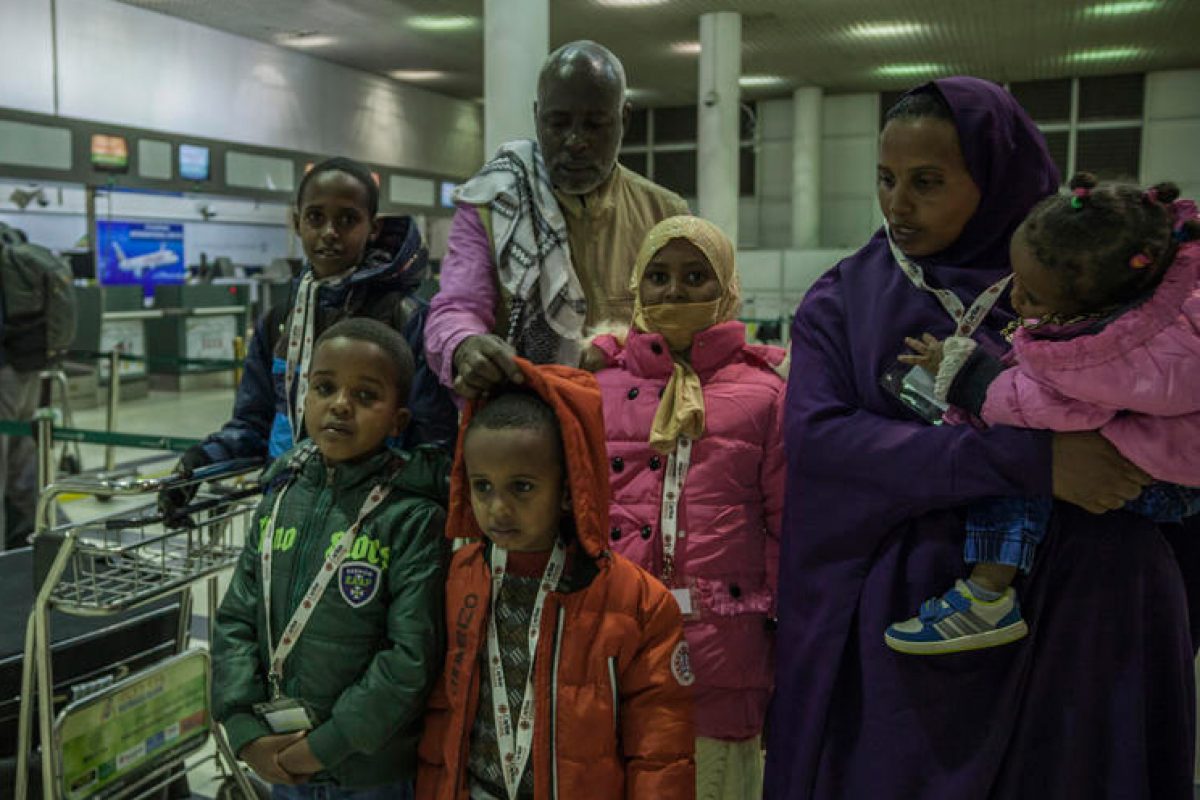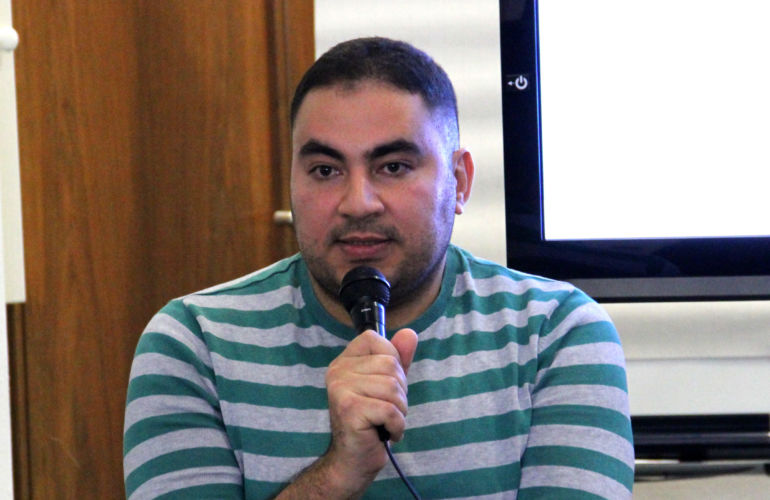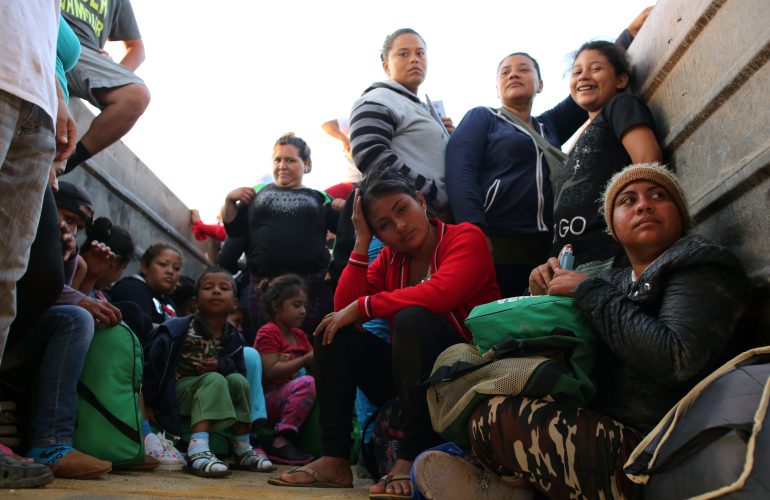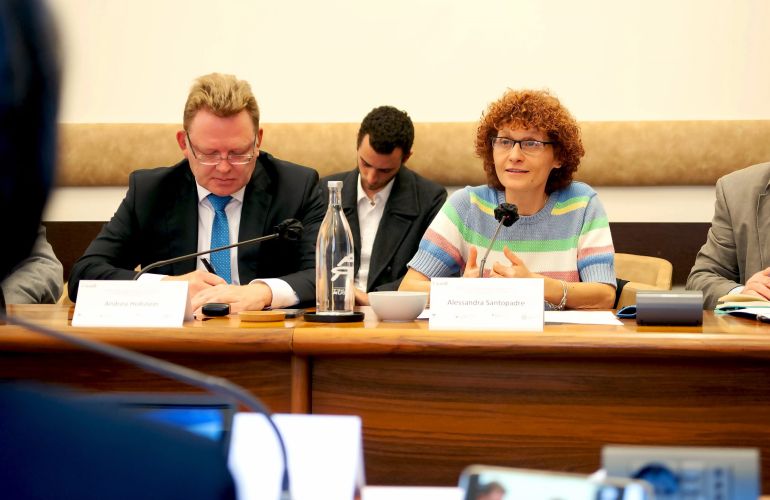Private Sponsorship of Refugees: Expanding Europe’s Tradition of Welcome

“Europe has a long-standing tradition of welcoming people in need, ever since Vietnamese refugees were privately sponsored to Europe and the United States,” remarked Petra Hueck, Head of ICMC Europe, at a conference on humanitarian corridors held in Italy.
The 1 July conference at the Italian Parliament in Rome took stock of private sponsorship programs for refugees in Italy and Europe. The conference was organized by Caritas Italiana, Comunità Sant’Egidio, and the Federation of Protestant Churches in Italy (FCEI), three faith-based organizations that have helped implement the Italian humanitarian corridor. The organizations’ work has allowed the admission of over 2000 vulnerable people since 2015.
Speaking on behalf of the International Catholic Migration Commission (ICMC) Europe office, Hueck’s remarks focused on private sponsorship of refugees in Europe. “The fundamental benefit of private sponsorship,” she said, “is the involvement of local communities in the process, and right from the beginning. When people in receiving countries engage with refugees, a new narrative takes shape, one that defies the many news reports painting refugees and migration in a negative light.”
Through private sponsorships, NGOs and faith-based organizations provide financial, social and emotional support to refugees resettling in their communities. The organizations are financially responsible for the refugees for a limited time. Governments remain in charge of their legal admission and of providing services such as health care, education and access to employment.
“In this particular political moment,” Hueck continued, “it is especially important to ensure that private sponsorships of refugees can flourish. This engagement can create a much better world than the one envisioned by many politicians.” Private sponsorship programs add to the social and integration services provided by the State; they do not replace them, she added.
Hueck further highlighted that many private sponsorship schemes take place in smaller communities, often in cities with less than 30,000 inhabitants. “We often think that big cities are open-minded and that smaller places are less welcoming, but what we see in our work is precisely the opposite.”
ICMC Europe actively engages with small communities and different actors through the SHARE Network. The network increases capacity and expertise for refugee inclusion, including through resettlement and private sponsorship.
One recommendation highlighted by Hueck is that refugees who arrive through private sponsorship should come in addition to the quotas to which States have committed through government-led resettlement programs. “Private sponsorship cannot and should not relieve States of their resettlement duties, nor substitute the national asylum systems for people who arrive independently,” she said.
Private sponsorship (also called community sponsorship or community-based sponsorship) programs allow the mobilization of new financial resources and tend to improve the integration of refugees who benefit from them. Private sponsorship promotes welcoming communities, includes a wide range of actors with diverse expertise and creates supporting structures in smaller towns.
In Canada, where a private sponsorship program has been in place for 40 years, research shows more successful integration among privately-sponsored refugees in comparison to those who arrive through the government-assisted refugee program.
Humanitarian corridors, present in Belgium, France and Italy, are a type of admission pathway complementary to resettlement; other such pathways are family reunification and student scholarships. Italy allows refugees to enter the country on a humanitarian visa, so they can safely apply for asylum once in the country. Current humanitarian corridor programs in Italy are coordinated by a small number of faith-based organizations and allow for assistance to refugees who have fled their home country and are being hosted by Ethiopia, Lebanon or Morocco.
The event was hosted by Italy’s Chamber of Deputies to discuss lessons learned from the Italian humanitarian corridor program. Mr. Roberto Fico, President of the Chamber; Ms. Emanuela Claudia Del Re, Deputy Minister of Foreign Affairs and International Cooperation; and Mr. Giuseppe Brescia, Chairperson of the Committee on Constitutional, Presidency of the Council of Ministers and Interior Affairs of the Chamber of Deputies addressed the audience.
• Learn more about the SHARE Network and private sponsorship in Europe
• Learn more about the Italian humanitarian corridor program (in Italian)


